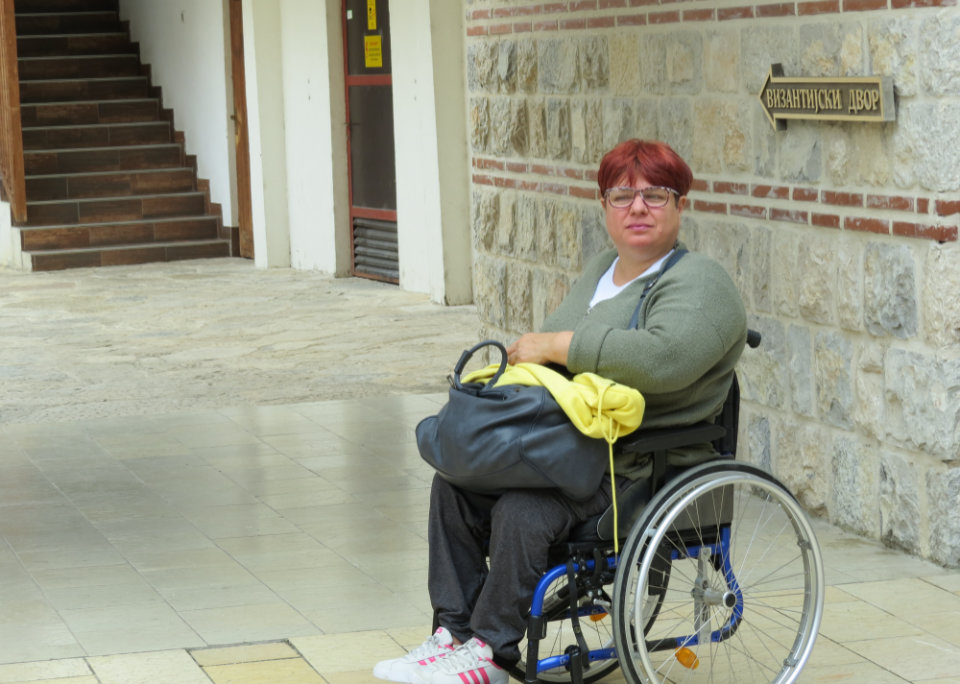In words of Tatjana Stojsic Petkovic: “The COVID-19 crisis deepens the marginalization of women with disabilities in Serbia”
Date:

Tatjana Stojsic Petkovic is a psychologist, laughter yoga leader, activist for the rights of women with disabilities, and provider of psychological workshops and individual support to women with disabilities in the NGO ‘...iz kruga - Vojvodina’ (…Out of Circle-Vojvodina) from Serbia. With the support of the EU-UN Women programme “Ending violence against women in the Western Balkans and Turkey: Implementing Norms, Changing Minds,” Ms. Stojsic Petkovic is a frontline worker, providing psychological support to women with disabilities in times of self-isolation during the COVID-19 pandemic. She emphasizes the need for adequate support systems for women with disabilities and vulnerable women.
![]()
When the state of emergency began, women with disabilities that I work with reacted calmly: ‘I can take this. I’ve organized everything. I live alone, but I have the support of my neighbours.’ Shortly after, they were telling a completely different story: ‘This has been going on for too long, I don’t know how I’ll manage!’ I remembered a handbook that was useful for working with children coming out of the war in the nineties [Balkans war], and I noticed some similarities with the phases we are going through now: denial, panic, acceptance and raising self-motivation.
How we will go through the current situation largely depends on the relations we have with the people we live with. The relations that were already bad have now worsened. The situation of women living with violence has exacerbated. Mothers of children with disabilities feel being rejected more intensely by the rest of family members with whom they share the household. Some went to weekend houses, to be alone there with the children because other household members cannot stand being all together in the new situation, which is devastating. The support system has changed completely, and we cannot apply the usual principles. We have lost our existing supports and our focus has shifted. Everyone is saying that now we have more time for ourselves and our families, but the family dynamics have changed completely. I offered some clients the option of writing to me instead of talking online because this is the only way they can have privacy now.
Women with disabilities feel some bitterness, disappointment, anger and rage when people complain about lack of movement and isolation, which is how they themselves have been living for years. The impulsive reaction is: Let them see what it’s like! This is not malicious, but they are conscious of what they had to overcome, give up on, and learn to live with. Fear is inevitable, and when we get out of this situation, it will be impossible to erase the fear. Women with disabilities fear being placed in the temporary COVID-19 hospitals if they test positive, as these facilities in the sports or fair halls are not accessible at all for people with physical disabilities or with visual or hearing impairments.
On one hand, it seems like we are raising the levels of empathy and developing new support systems, but paradoxically, we can see that marginalized groups are now even more marginalized. I contacted some volunteer organizations to ask what kind of support they were providing to persons with disabilities. They said they had not even thought about it. We need to think about adequate support systems for marginalized persons.”